
You can feel the locals’ passion for this region as you enter the calm and quiet town of Haenertsburg. Nestled in the Magoebas kloof region of Limpopo, among the northern peaks of the Drakensberg, the town is clearly well loved by residents. As you meander up and down the few streets, you see well caredfor and wild gardens, where a passion for the natural environment is unmistakable.
From late December to midJanuary one of many bird calls you may hear is the unmistakable squawking of the na tionally Endangered Cape Parrot. This beautiful species, also the Bird of the Year for 2023, is found here thanks to the mistbelt Afromontane forest. The Wild Bird Trust’s Cape Parrot Project has begun studying this small, isolated population, although locals and citizen scientists have been monitoring the species for decades.
Wearing muddy hiking boots is a completely acceptable fashion trend in the town of Haenertsburg, as there are many spectacular trails in the area. These range from the overnight Magoe baskloof Hiking Trail in the Woodbush Forest to shorter walks such as the Leso di and Louis Changuion trails.
The Louis Changuion trail starts in the town itself, just next to the commu nity hall. A moderate hike of just over 10 kilometres, this trail is best enjoyed at a leisurely pace. As you start by walk ing alongside the houses, you would be forgiven for thinking that you are in a quaint English village as rivers trickle by in lush drainage lines. You are reminded that you are not in the Cotswolds thanks to the wonderful calls of Burchell’s Coucals, Redchested Cuckoos, Dark capped Bulbuls and, if you’re lucky and early enough, Buffspotted Flufftails, among many others.
この記事は African Birdlife の May/June 2023 版に掲載されています。
7 日間の Magzter GOLD 無料トライアルを開始して、何千もの厳選されたプレミアム ストーリー、9,000 以上の雑誌や新聞にアクセスしてください。
すでに購読者です ? サインイン
この記事は African Birdlife の May/June 2023 版に掲載されています。
7 日間の Magzter GOLD 無料トライアルを開始して、何千もの厳選されたプレミアム ストーリー、9,000 以上の雑誌や新聞にアクセスしてください。
すでに購読者です? サインイン

EXPLORING NEW HORIZONS
Keith Barnes, co-author of the new Field Guide to Birds of Greater Southern Africa, chats about the long-neglected birding regions just north of the Kunene and Zambezi, getting back to watching birds and the vulture that changed his life.

footloose IN FYNBOS
The Walker Bay Diversity Trail is a leisurely hike with a multitude of flowers, feathers and flavours along the way.
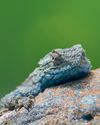
Living forwards
How photographing birds helps me face adversity
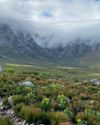
CAPE crusade
The Cape Bird Club/City of Cape Town Birding Big Year Challenge
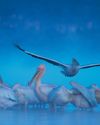
water & WINGS
WATER IS LIFE. As wildlife photographer Greg du Toit knows better than most.
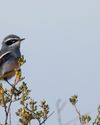
winter wanderer
as summer becomes a memory in the south, the skies are a little quieter as the migrants have returned to the warming north. But one bird endemic to the southern African region takes its own little winter journey.
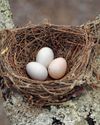
when perfect isn't enough
Egg signatures and forgeries in the cuckoo-drongo arms race

Southern SIGHTINGS
The late summer period naturally started quietening down after the midsummer excitement, but there were still some classy rarities on offer for birders all over the subregion. As always, none of the records included here have been adjudicated by any of the subregion's Rarities Committees.

flood impact on wetland birds
One of the features of a warming planet is increasingly erratic rainfall; years of drought followed by devastating floods. Fortunately, many waterbirds are pre-adapted to cope with such extremes, especially in southern Africa where they have evolved to exploit episodic rainfall events in semi-arid and arid regions. But how do waterbirds respond to floods in areas where rainfall - and access to water - is more predictable? Peter Ryan explores the consequences of recent floods on the birds of the Western Cape's Olifants River valley.
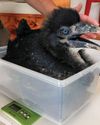
a star is born
It’s every producer’s dream to plan a wildlife television series and pick the right characters before filming.